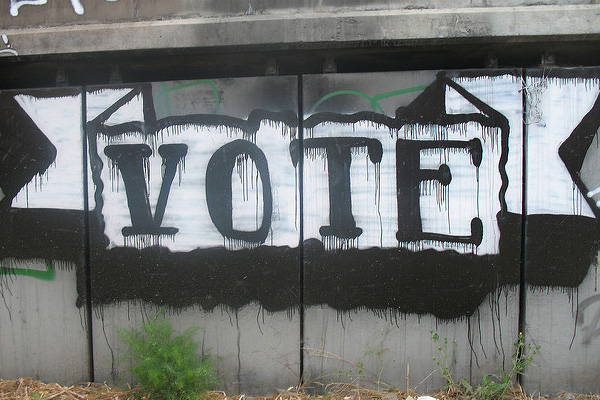
The western world, certainly the EU, with Trump, a debilitated Merkel and Le Pen (even Sarkozy) in charge would not be the same as one with Clinton, Juppé and a strengthened Merkel, or another German leader –without even considering the situation in the Netherlands, Austria and, of course, Spain–. As things stand, however, both combinations are almost equally likely, with many electorates around the world feeling angry and rebellious due to economic factors and reasons bound up with identity, among others.
Years ago Jacques Delors claimed that the construction of Europe was the innocent lovechild of Christian Democracy and Social Democracy. It has been some time since the former, influenced by the Berlusconi school, veered towards the popular and it is now being squeezed by European populism on its right (Spain being an exception). And the latter is in crisis virtually everywhere Europe.
The next few months could be decisive for Europe and they are going to hinge to a large extent on what voters decide in various member states and the US. Everything could work out awkwardly, as history usually does. Or some things may turn out bearably and others badly. The prospects for wild celebrations, however, seem remote. The series of forthcoming elections lead to scenarios that are either black or grey, but none of them appear white.
The phenomenon has already been observed with the Brexit referendum; and again last Sunday, in the vote driven by the government of Viktor Orban to reject the deal between Member States of compulsory quotas of refugees in the EU, as proposed by the European Commission. Even if the result is formally invalid as the turnout was under the required 50% (only 43.9% voted), 98% of those who went to vote rejected the EU’s claim, which is significant and, for Orbán, sufficient to merit having consequences. In a few months, the three referendums held in the EU on Community matters (in the Netherlands, the UK and Hungary) have gone against Europe.
The presidential election in the US is to be held on 8 November. If Donald Trump wins, a certain conception of the Western World, as Martin Wolf has pointed out, may well be destroyed, although it had already been becoming steadily weaker. The crisis surrounding the Transatlantic Trade and Investment Partnership (TTIP) is a symptom in a world that is becoming increasingly post-Western. Despite Hillary Clinton having won the first debate between the presidential candidates of what is still the most powerful nation on Earth, it was not conclusive and various polls predict that the radical Republican will win in November, not only the popular vote but also the electoral college vote, which is what really counts. If Trump gets to the White House with his antagonism to NATO and sympathy for Putin, Europe may wake up. This time we would not have an ‘external federator’, as De Gaulle put it, driving European integration; integration might instead be driven by Europeans’ fear of being left on their own. Or, on the contrary, fragmentation might once again be the order of the day.
The months ahead will see some crucial elections in Europe. The referendum on political reform (essentially of the Senate) in Italy is to be held on 4 December. To a large extent it will be a plebiscite on the Democratic Party Prime Minister, Matteo Renzi. If he loses, it could unleash serious doubts about Italy and its banking system, already under scrutiny, with repercussions throughout the Eurozone. It would be preferable for him to win.
December will see the re-run of the second round of presidential elections in Austria –due to a formal error with invalid votes and an issue with envelopes not sealing properly– where the two traditional parties, the Christian Democrats and the Social Democrats, will be absent and an extreme right-wing candidate, Norbert Hofer, will face a pro-European independent Green candidate, Alexander Van der Bellen (who by a thread won the annulled vote).
A general election is scheduled for March 2017 in the Netherlands, one of the founding countries of the EU, but where reluctance to move forwards in integration advance has grown. The governing coalition made up of the Liberals of the Prime Minister, Mark Rutte, and the Social Democratic PvdA, will be the only one that has managed to endure for an entire legislative session since 2002. The opinion polls, however, give the lead to the Party for Freedom (PVV), led by the xenophobic and anti-European Geert Wilders, which is set to make threefold gains on its 2012 results, while the current majority is predicted to fall a long way short of the seats it would need to continue in power.
Naturally enough, although the ‘axis’ is no longer working, attention is focused on Paris and Berlin. The presidential elections in France will take place in April and May, and the legislative elections in June. Prior to this, in November, there will be primaries to choose the Republican (centre-right) and socialist candidates for the Élysée Palace, who is expected to go head-to-head with Marine Le Pen. If it is the current President, François Hollande, he has little chance of reaching the second round, where the leader of the National Front is well placed. Within the Republicans the fight is between the former President, Nicolas Sarkozy, tainted by Le Pen’s xenophobic and anti-Muslim rhetoric and espousing a thorough rewriting of Europe, and the more moderate Alain Juppé. A Sarkozy-versus-Le Pen second round is impossible to call if many on the left abstain. If it features Juppé –or other possible candidates– the picture changes, although without entailing far-reaching renewal in France.
In neighbouring Germany, Angela Merkel’s leadership of her country and of Europe is in doubt after the inroads made by the Eurosceptic and xenophobic Alliance for Germany (AfD). The current chancellor may stage a comeback in the election scheduled for next summer, but at the moment she is on a slippery slope, despite the fact that she and her Christian Democrats are in the lead. In order to govern she would need to form a coalition that goes beyond the present one with her Bavarian sister party, the CSU –with its pro-Christian immigration rhetoric– and the ailing Social Democrats. She might also perhaps need the Greens. If so, Berlin’s leadership, both feared and needed by Europe in its current guise, would be seriously weakened.
The decision –the demand side– is in the hands of the voters. The supply side is up to the candidates.


